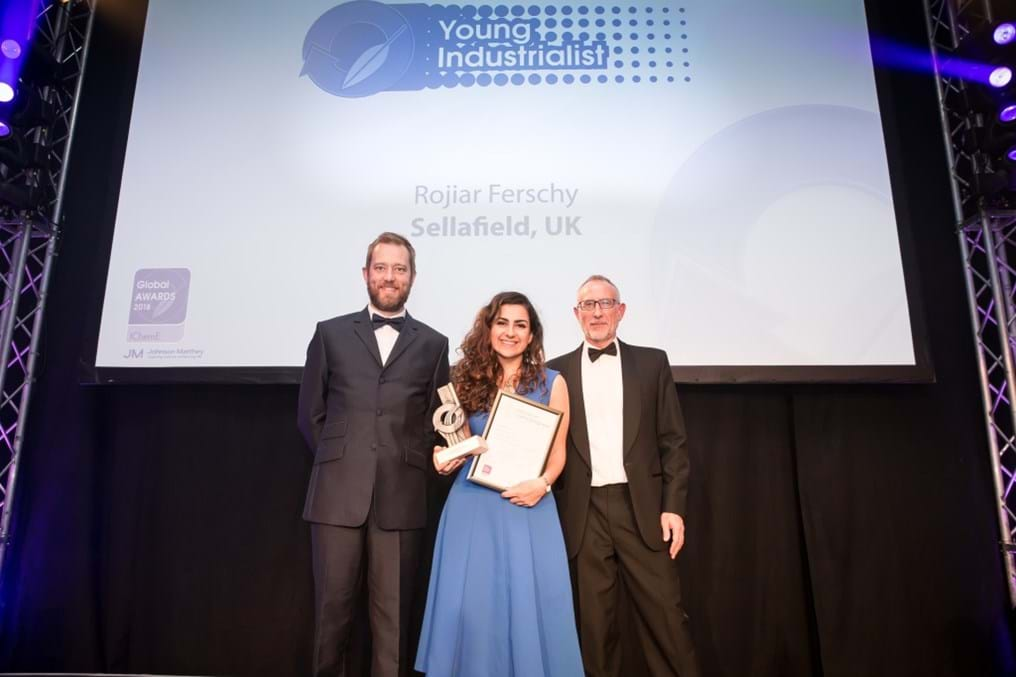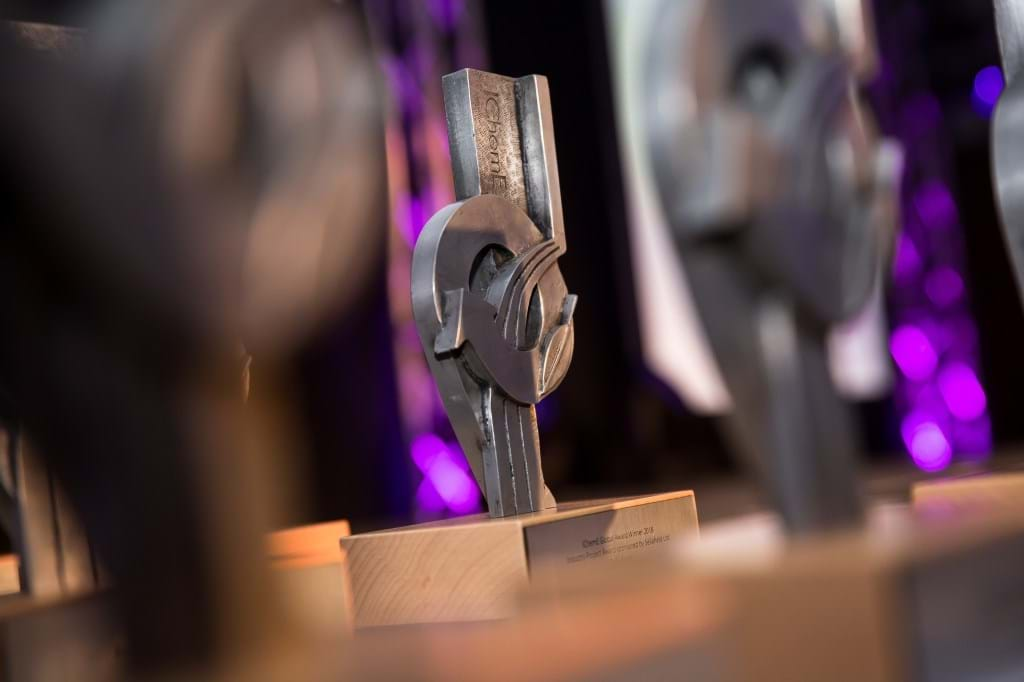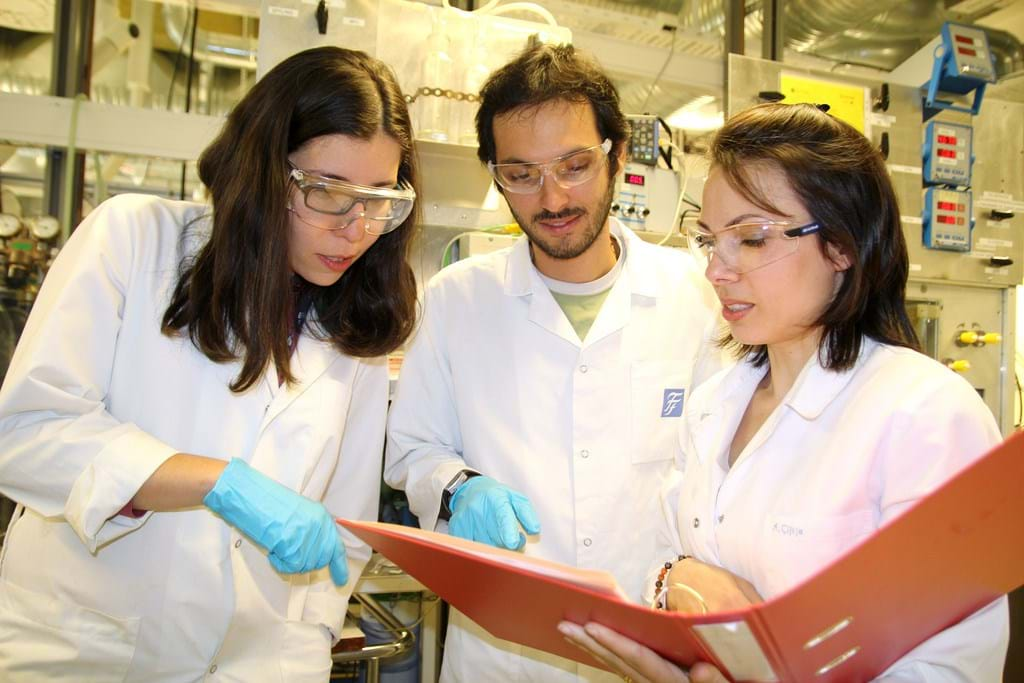GUEST BLOG: Celebrating International Day of Women and Girls in Science

11th February 2019
Today marks the UN’s International Day of Women and Girls in Science. Gender equality in all STEM subjects (science, technology, engineering and maths) is vital for achieving the UN’s sustainable development goals, which is why this year’s theme is Investment in Women and Girls in Science for Inclusive Green Growth.
Last month we saw the launch of Engineering Skills for the Future - the 2013 Perkins review revisited, which reported that female representation across all engineering disciplines remains stubbornly low at an overall 15%.
At IChemE we work with hundreds of member volunteers, some of which are hugely passionate about promoting STEM careers to young people. One of them is Rojiar Ferschy, a Process Engineer at Sellafield and winner of the IChemE Young Industrialist Award in 2018. She dedicates her free time to mentoring young people, being a role model for girls looking to become engineers and helping refugees and asylum seekers adjust to their new lives in the UK.
Today she tells us about what inspired her to become a chemical engineer, and what can be done to help improve diversity in the profession.

Name: Rojiar Ferschy
Education: MEng (Hons) Chemical Engineering and Advanced Materials, Graduated in 2013 from Newcastle University
Job title: Process Engineer
Specialist subject/research topic at university: As an undergraduate, my design project was to develop an underground coal gasification plant and to produce a dynamic simulation model of the process. My research project was titled Microbial Fuel Cells as Biosensors which focused on developing a cost effective and practical biosensor to control the quality of water in remote areas.
Bio: I work as a Process Design Engineer in the nuclear industry. I provide technical and safety advice to operational waste reprocessing plants, carry out research studies and work closely with my colleagues from other engineering disciplines to ensure safety and efficiency of our processes.
On a day-to-day basis, I could be on site speaking to various stakeholders, recording data, and walking down design drawings; or back at my desk developing design solutions, doing calculations, writing reports, speaking with manufacturers etc. My work is varied as I work on diverse multiple projects such as, designing a pressurised gas supply system or reviewing ventilation arrangements of the plant.
In my spare time I volunteer for various organisations aligned with causes I am passionate about, such as international development, equality and environmental projects. I work with refugees and asylum seekers support organisations, helping the refugees to improve their English and transition into their new life.

When did you know a career in chemical engineering was for you?
I grew up in Iran. While the country has a large oil industry, traditionally not many women have worked in that field. I would say my initial interest came from my curiosity and an aspiration to succeed in that male dominated industry. After moving to the UK and during my GCSEs, I became increasingly interested in using science to finding solutions for environmental and sustainability issues. A career in chemical engineering therefore seemed to be the best fit.
You work at Sellafield Ltd UK as a Process Engineer. What do you most enjoy in your role, what are the challenges, and what do you find most rewarding?
Sellafield Ltd has the important challenge of cleaning-up the country’s highest nuclear risks and hazards as well as safeguarding nuclear fuel, materials and waste. We face a lot of unique problems in our work so finding the solutions is the most challenging and rewarding aspect of my job. I really enjoy the work environment and the supportive culture.

How did it feel to win the Young Industrial Award at the IChemE Global Awards last year?
I am so honoured to have had such an amazing experience. I am grateful to work amongst such wonderful and supportive colleagues and mentors who encouraged me to enter for the Awards, and for my peers and the judges for the recognition. Winning this award shows that women in engineering can succeed and be recognised for their contribution to the field.
To mark this year's International Day of Women and Girls in Science, as a female in a chemical engineering career, why do you feel more women should get into engineering?
Our gender should not define what we become and should not be a factor to how well a person can perform in a job. It is important that we recognise and remove gaps, barriers and stereotypes, especially those that fixate a gender to a specific field, and instead move towards a “balance” in which for every role both women and men can contribute equally. At the moment, the balance is not there, but I am confident this will change.
Diverse and inclusive work environments enrich productivity, creativity, emotional intelligence and innovation.
Do you think there is a shift in the number of females getting into chemical engineering?
Yes, absolutely. I have seen an increase in the number of females studying engineering and getting engineering graduate jobs, both in my own experience and in published statistics.
However, we are still a long way away from anything close to an equal ratio and more needs to be done. Women are still chronically under-represented across all fields of science, making up under 20% of the STEM workforce in the UK.

How do you think the industry and the wider chemical engineering community can do more to encourage females to work in chemical engineering?
Most institutions today are making an increasingly conscious effort to promote diversity and employ more female scientists and engineers. However, many cultural forces continue to stand in the way; these range from girls being steered toward other professions from an early age, gender bias and sexual harassment in the workplace to the potentially career-stalling effects of having children. So, not only is there such a low ratio of female to male engineering students, retention of the female workforce in engineering also stays a persistent problem.
In order to introduce young females to engineering, networks of professional women volunteers should continue to do STEM activities such as school visits to show students what can be achieved in the field. Companies should offer work experience and apprenticeship schemes and encourage their existing employees to promote engineering in career fairs etc. Social media also plays an important part in my opinion. It gives each of us a voice which we can use to break down incorrect perceptions and promote chemical engineering.
In my own experience, I have found it very helpful to have a mentor who I meet with regularly. I have always reflected on my own personal and professional values, determined what support I need and from whom. This has allowed me to visualise my future goals and aspirations and set up objectives towards achieving them.
Other really useful schemes which I have seen offered by some companies are programmes such as STEM re-entry or Get in touch days. These are great ways to encourage and empower women to return to their technical roles, following a period of long-term leave.
Why is it important to have gender-balance in engineering, especially chemical engineering?
In my opinion, chemical engineering bears the solution to many global challenges that we are currently facing. It would be a shame to lose out on some of the greatest minds that could be helping resolve these challenges, due to gender imbalance.
What advice would you give to young girls and women who might be considering a career in chemical engineering?
Being a chemical engineer is amazing. You get to solve unique problems and make a real difference on global issues such as climate change and resource constraints. Chemical engineering is an immensely diverse field with a huge range of opportunities for progression. Studying chemical engineering will not only provide you with technical skills, but also numerous soft skills which are transferrable to other paths. The work schedule can be flexible, and the field is also well compensated financially due to the nature and significance of the work. You can also work anywhere in the world!